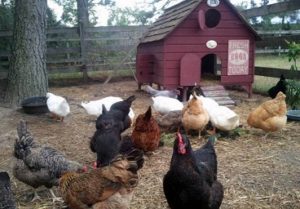Go Lean Commentary
 Unlike most places, the Bahamas mandates that restaurants charge 18% gratuity … even for take-out operations. This is extreme, as gratuity is universally accepted as remuneration for the Wait Staff. But when the mode of operation is “take-out”, gratuity is superfluous – there is no Wait Staff.
Unlike most places, the Bahamas mandates that restaurants charge 18% gratuity … even for take-out operations. This is extreme, as gratuity is universally accepted as remuneration for the Wait Staff. But when the mode of operation is “take-out”, gratuity is superfluous – there is no Wait Staff.
Further, this “take-out gratuity” it is an example of …
rent-seeking – extracting uncompensated value from others without making any contribution – getting something for nothing.
To mandate gratuity under this extreme is really a bad community ethos – fundamental character or spirit of a culture; the underlying sentiment that informs the beliefs, customs, or practices of a group or society.
Remember, this old maxim:
The chickens have come home to roost
This expression was renewed by Malcolm X after the assassination of President John F. Kennedy, The adage dates back to at least 1810 when the English poet Robert South wrote, “Curses are like young chickens; they always come home to roost”. From an agricultural expression, it is true, domesticated foul may wander about all day – think Free Range – but in the evening, they do return to their default nesting location, the hen-house. This saying is comparing a person’s evil or foolish deeds to chickens. If a person does wrong, the “payback” might not be immediate. But at some point, at the end of the day, those “chickens” will come home to roost. “One has to face the consequences of one’s past actions”.
The lesson-learned is simple: we are NOT entitled to other people’s money.
Now, there is a New Economy, the bad attitudes about other people’s money have repercussions and consequences. Foolish policies like mandatory gratuity on take-out dinning are not tolerated under the New Economy regime. Places like the Bahamas – and other Caribbean member-states – must reform and transform.
 The New Economy has brought forward a “Sharing Eco-System” in which industrial trends like ride-sharing, home-sharing and delivery assignments have emerged. There is now the concept of “ghost” restaurants – delivery services only; see details in the Appendices below.
The New Economy has brought forward a “Sharing Eco-System” in which industrial trends like ride-sharing, home-sharing and delivery assignments have emerged. There is now the concept of “ghost” restaurants – delivery services only; see details in the Appendices below.
Welcome to the Gig Economy.
Want a piece of this?
End mandatory gratuity on Restaurant Take-out activities!
All of these developments have created new jobs, new businesses and new opportunities. If we want a piece of this New Economy, then we have to adapt; we must rid ourselves of the bad community ethos and adopt some new ones. This theme – positioning our society for the New Economy – aligns with previous commentaries; see a sample list here:
| https://goleancaribbean.com/blog/?p=17040 | Uber: A Better ‘Mousetrap’ |
| https://goleancaribbean.com/blog/?p=13916 | Model of ‘Gig Economy’ – Mother’s Love in Haiti |
| https://goleancaribbean.com/blog/?p=10220 | Waging a Successful War on Rent |
| https://goleancaribbean.com/blog/?p=8262 | UberEverything in Africa – Model of ‘Gigs’ |
| https://goleancaribbean.com/blog/?p=7646 | Going from ‘Good to Great’ |
| https://goleancaribbean.com/blog/?p=5542 | Economic Principle: Bad Ethos of Rent-Seeking |
| https://goleancaribbean.com/blog/?p=2571 | More Business Travelers flock to Airbnb |
The Caribbean region must prepare and foster opportunities and dictate economic progress, so we must “weed out” bad practices and/or “rent” in our community ethos; instead we must pursue better ethos, as in the Greater Good. The book Go Lean…Caribbean defines this attribute as follows (Page 37):
“The greatest good to the greatest number of people which is the measure of right and wrong”. – Jeremy Bentham (1748 – 1832).
There are repercussions and consequences of bad community ethos. For one, people feel cheated, they leave-flee-abandon their homeland!

People may love their homeland, but seek refuge in more progressive societies, on foreign shores. The reasons why people leave in the first place have been identified as “Push and Pull”:
- “Push” refers to the reasons people who feel compelled to leave, to seek refuge in a foreign land. “Refuge” is an appropriate word; because of societal defects – like unearned entitlements – many from the Caribbean must leave as refugees – think Disability, Domestic-abuse, Medically-challenged and LGBT – for their life, liberty and pursuit of happiness.
- “Pull”, on the other hand refers to the lure of a more prosperous life abroad; many times our people are emigrating to communities where there are less rent-seeking and Crony-Capitalism practices.
If only we can mitigate these “push and pull” factors, then we can dissuade our societal abandonment and have a chance of reforming and transforming our societal engines in the homeland. Having an entitled attitude towards other people’s money is a bad attitude. The reality of the New Economy is premised on good business values and good societal values: Win-Win.
A Win-Win for Caribbean stakeholders is the motive for this movement behind the Go Lean book. We want to change – reform and transform – our Caribbean society by optimizing the eco-systems for economics, security and governance.
Yes, we can …
… it is heavy-lifting, but conceivable, believable and achievable that we can make changes and succeed in elevating our communities. This is about bad attitudes and bad habits. We have seen this before. The Go Lean book relates (Page 20):
Change is not easy …
Just ask anyone attempting to quit smoking. Not only are there physiological challenges, but psychological ones as well, to the extent that it can be stated with no uncertainty that “change begins in the head”. In psycho-therapy the approach to forge change for an individual is defined as “starting in the head” (thoughts, visions), penetrating the heart (feelings, motivations) and then finally manifesting in the hands (actions). This same body analogy is what is purported in this book for how the Caribbean is to embrace change – following this systematic flow:
- Head – Plans, models and constitutions
- Heart – Community Ethos
- Hands – Actions, Reboots, and Turn-arounds
Leaning in and going lean for Caribbean regional integration hereto requires engaging all three body parts, figuratively speaking, none more important than the heart. The people of the Caribbean must change their feelings about elements of their society – elements that are in place and elements missing. This is referred to as “Community Ethos”.
Let’s get started. Let’s quit smoking, rent-seeking and all other bad habits and practices. This is how we can make our homeland a better place to live, work and play.
About the Book
The book Go Lean…Caribbean serves as a roadmap for the introduction and implementation of the technocratic Caribbean Union Trade Federation (CU), for the elevation of Caribbean society – for all member-states. This CU/Go Lean roadmap has these 3 prime directives:
- Optimization of the economic engines in order to grow the regional economy to $800 Billion & create 2.2 million new jobs.
- Establishment of a security apparatus to ensure public safety and protect the resultant economic engines.
- Improve Caribbean governance to support these engines, including a separation-of-powers between the member-states and CU federal agencies.
The Go Lean book provides 370-pages of turn-by-turn instructions on “how” to adopt new community ethos, plus the strategies, tactics, implementations and advocacies to execute so as to reboot, reform and transform the societal engines of Caribbean society.
Download the free e-Book of Go Lean … Caribbean – now!
Who We Are
The movement behind the Go Lean book – a non-partisan, apolitical, religiously-neutral Community Development Foundation chartered for the purpose of empowering and re-booting economic engines – stresses that reforming and transforming the Caribbean societal engines must be a regional pursuit. This was an early motivation for the roadmap, as pronounced in the opening Declaration of Interdependence (Pages 12 – 13):
xi. Whereas all men are entitled to the benefits of good governance in a free society, “new guards” must be enacted to dissuade the emergence of incompetence, corruption, nepotism and cronyism at the peril of the people’s best interest. The Federation must guarantee the executions of a social contract between government and the governed.
xvi. Whereas security of our homeland is inextricably linked to prosperity of the homeland, the economic and security interest of the region needs to be aligned under the same governance. Since economic crimes … can imperil the functioning of the wheels of commerce for all the citizenry, the accedence of this Federation must equip the security apparatus with the tools and techniques for predictive and proactive interdictions.
xxi. Whereas the preparation of our labor force can foster opportunities and dictate economic progress for current and future generations, the Federation must ensure that educational and job training opportunities are fully optimized for all residents of all member-states, with no partiality towards any gender or ethnic group. The Federation must recognize and facilitate excellence in many different fields of endeavor, including sciences, languages, arts, music and sports. This responsibility should be executed without incurring the risks of further human flight, as has been the past history.
xxiv. Whereas a free market economy can be induced and spurred for continuous progress, the Federation must install the controls to better manage aspects of the economy: jobs, inflation, savings rate, investments and other economic principles. Thereby attracting direct foreign investment because of the stability and vibrancy of our economy.
xxvi. Whereas the Caribbean region must have new jobs to empower the engines of the economy and create the income sources for prosperity, and encourage the next generation to forge their dreams right at home, the Federation must therefore foster the development of new industries, like that of ship-building, automobile manufacturing, prefabricated housing, frozen foods, pipelines, call centers, and the prison industrial complex. In addition, the Federation must invigorate the enterprises related to existing industries like tourism, fisheries and lotteries – impacting the region with more jobs.
Sign the petition to lean-in for this roadmap for the Caribbean Union Trade Federation.
——————
Appendix – What Are Ghost Restaurants?
 If you’re tuned into restaurant trends, you may have heard of ghost restaurants. These new types of foodservice establishments are increasing in popularity as more and more restaurateurs decide to depart from traditional brick-and-mortar establishments and focus on delivery instead. If you want to learn more about what ghost restaurants are, how they work, and how you can start a successful one, keep reading.
If you’re tuned into restaurant trends, you may have heard of ghost restaurants. These new types of foodservice establishments are increasing in popularity as more and more restaurateurs decide to depart from traditional brick-and-mortar establishments and focus on delivery instead. If you want to learn more about what ghost restaurants are, how they work, and how you can start a successful one, keep reading.
What Is a Ghost Restaurant?
A ghost restaurant, also known as a virtual restaurant or delivery-only restaurant, is a foodservice establishment that offers take-out only. These “ghostly” eateries don’t have a storefront, so customers can’t come to pick up their own food. Ghost restaurants deliver food directly to their patrons, often through the use of third-party delivery services.
Mostly Made-to-Order
Generally, virtual restaurants function just like traditional restaurants, in that customers’ food is prepared once they order it. As a result, many establishments offer a lot of customization options for their menu items.
Where Do Ghost Restaurants Work Best?
This type of foodservice model is especially great for high-rent areas. Instead of hoping to find a prime location to draw foot traffic, restaurateurs can establish their virtual restaurant in any neighborhood they see fit, so long as their delivery service can easily access customers.
Making the Most of Their Space
Many popular fast-casual establishments in cities are bound by the requirement for seating and waiting space, even though a large percentage of their customers aren’t dining in. So, offering only delivery helps virtual restaurants avoid the problem of underutilized space.
Advantages of Ghost Restaurants
Here are some things that ghost restaurants can do that traditional eateries can’t:
- Flexibility of concept: Being app- or web-based means that you can change your menu whenever you like, without having to worry about updating signage or printed materials.
- Adjustable menu: If an ingredient becomes too expensive or is no longer accessible in your area, you can easily swap out your menu items to suit what is available to you.
- Smaller financial investment: Think about all the expensive elements that don’t apply to virtual restaurants: decor, signage, dinnerware, and additional staff members to serve as servers or hosts.
- Opportunity for experimentation: Ghost restaurants are the perfect opportunity to experiment with new concepts, because you can easily scrap ideas that aren’t working.
What Is a Ghost Restaurant Kitchen Like?
In virtual restaurants, the kitchen is where a lot of your investment goes. Because you don’t have to allow square footage for a dining area, you have much more room to customize your kitchen space. Depending on your budget, you can opt for some specialized cooking equipment that you probably never had room for in a traditional restaurant.
Using One Kitchen for Several Concepts
You can even own multiple ghost restaurants and operate them out of the same kitchen. Especially if your menus have ingredient overlap, you can prepare food for two separate concepts in one efficient space.
…
Source: Retrieved May 21, 2019 from: https://www.webstaurantstore.com/blog/2348/what-are-ghost-restaurants.html
————–
Appendix VIDEO – How Ghost Restaurants are Changing the Food Industry – https://youtu.be/59sPK73YjA0
Cheddar
Published on Feb 23, 2019 – With the rise of delivery services has come the rise of Ghost Restaurants which will cook your food and deliver it, but you’d never be able to order “for here”.
Subscribe to Cheddar on YouTube: http://chdr.tv/subscribe
Connect with Cheddar!
On Facebook: http://chdr.tv/facebook
On Twitter: http://chdr.tv/twitter
On Instagram: http://chdr.tv/instagram
On Cheddar.com: http://chdr.tv/cheddar
- Category – Entertainment

